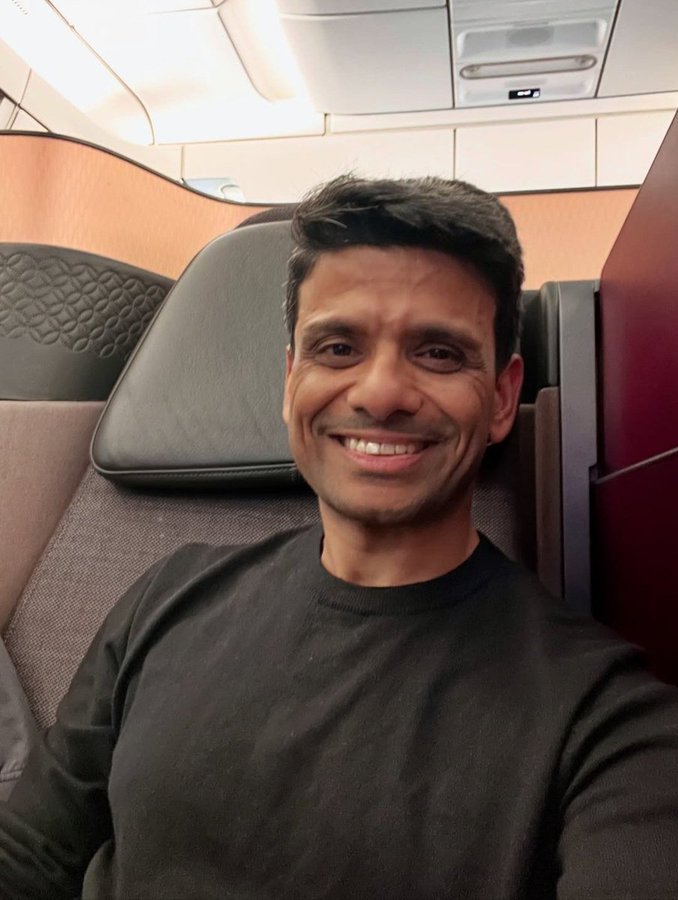Shubhanshu Shukla Set to Arrive in India Tomorrow
Group Captain Shubhanshu Shukla, India’s new-generation astronaut and celebrated space hero, is on his way back home after making history as pilot of the Axiom-4 mission to the International Space Station (ISS). His return marks a milestone moment for India’s human spaceflight ambitions. According to sources, he is scheduled to land in India tomorrow, with a possible meeting with Prime Minister Narendra Modi on Monday to share mission experiences that could prove invaluable for the nation’s maiden human space programme, Gaganyaan.
A Historic Homecoming After Axiom-4 Success
This will be Shukla’s first visit to India since successfully completing his 18-day stay aboard the ISS. In a heartfelt message posted during his flight back, he described the emotional mix of leaving behind his international astronaut colleagues while being excited to meet his family, friends, and fellow citizens. “Goodbyes are hard but we need to keep moving in life,” he wrote, adding that spaceflight taught him that “the only constant is change.”
Shukla’s participation in the Axiom-4 mission marked the first time an Indian pilot contributed directly to an international commercial spaceflight. During his time aboard, he conducted seven India-specific scientific experiments, ranging from microgravity research to advanced material studies, which have now returned to Indian labs for detailed analysis.
Scheduled to Meet PM Modi and Join Space Day
On his arrival, Shukla is expected to brief Prime Minister Modi about the mission and hand over his detailed documentation of training and station life. The Prime Minister had earlier requested that Shukla record every aspect of his preparation, as these insights will serve as a reference handbook for Gaganyaan.
The astronaut is also set to participate in National Space Day celebrations on August 23, where his experiences will inspire young scientists and students across the country. His presence at the event is seen as a symbolic bridge between India’s first human spaceflight preparations and its larger vision of a self-reliant space future.
Training and Preparation for India’s Gaganyaan Mission
Shukla underwent over a year of advanced training in the United States, working at facilities of NASA, Axiom Space, and SpaceX. His expertise in piloting spacecraft, understanding international space protocols, and conducting experiments in microgravity is expected to form the backbone of India’s astronaut training programme.
Alongside him, Group Captain Prashant Balakrishna Nair, the standby astronaut for Axiom-4, also completed similar training and will play a critical role in Gaganyaan. Together, they represent India’s first cadre of spacefarers in the 21st century.
India’s Ambitious Space Goals: Gaganyaan to Bharatiya Antariksh Station
India is advancing rapidly in the space sector with ambitious projects. Prime Minister Modi, in his Independence Day address, reaffirmed the country’s plan to set up the Bharatiya Antariksh Station by 2035 and to land an Indian astronaut on the moon by 2040.
The Gaganyaan mission, led by ISRO, aims to launch Indian astronauts from Indian soil using indigenous technology. The Launch Vehicle Mark-3 has been upgraded for human spaceflight, though challenges remain with the crew module and environmental control systems. These hurdles are being addressed, as India pushes forward to become the fourth nation in the world to achieve independent human spaceflight, after Russia, the United States, and China.
A Space Hero Inspiring a Generation
For millions of Indians, Shubanshu Shukla’s journey represents not only technological achievement but also national pride. His story reflects India’s determination to emerge as a space power and inspire future generations of scientists, engineers, and explorers. His return is expected to trigger a wave of public interest and enthusiasm, especially among students and young researchers eager to contribute to India’s space odyssey.
As Shukla himself noted before leaving the ISS, “Life is like a train running on the wheels of time. All we can do is keep moving forward.” For India, that forward motion is now firmly directed toward the stars.








